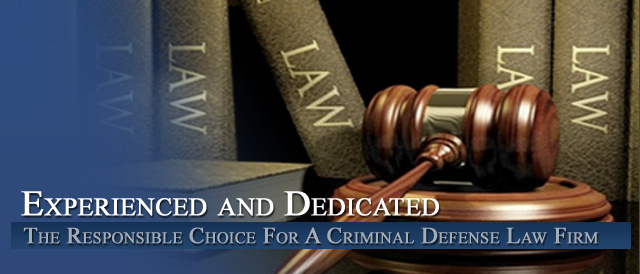




Colorado Criminal Law – Criminal Histories and Teacher – Instructor – Social Services Applications And Other Background Checks
A full understanding of several aspects of the Colorado criminal history system is necessary if you are applying for a position as a Colorado Teacher or Social Services worker. Further – if there is incorrect information on one’s criminal history – this article directs the individual on the method of removing erroneous information from that criminal history.
Colorado Criminal Background Searches
Researching the background of an individual by doing both a CBI Name search and a CBI/FBI
Colorado Bureau of Investigation Records.
The Identification Unit of the Colorado Bureau of Investigation (CBI) has the responsibility to maintain and update all information stored in the Automated Fingerprint Identification System (AFIS), used in the identification of fingerprints, and the Colorado Crime Information Center (CCIC), which houses all fingerprint based Colorado criminal history record information (CHRI) records.
Colorado is an open records state and this information is available to the public.
Name checks are checks completed using Colorado Bureau of Investigation (CBI) criminal history record information (CHRI).
This information is based on the name, birth date and social security number of the person only.
A background check of a teacher – if the applicants name is returned with CHRI – it is checked against the Vulnerable Persons Act, to ensure that the CHRI meets the criteria in the law.
If there exists charges that meet criteria in the law, the applicant is then sent a letter asking for disposition information if none is otherwise available.
A disposition is the final outcome of the court case. To obtain disposition information, one must call or go to the court where the case was heard and ask the court clerk for a certified copy of the final disposition of the charges listed in the letter.
Applicants for such positions as teaching jobs are disqualified if they have been convicted of a crime listed in the Vulnerable Persons Act, § 27-1-110 (7), C.R.S.
TRAILS Check – The Colorado Child Abuse Registry – Trails Database of Child Protection Check
The TRAILS Database is part of the Division of Child Welfare tracking system for individuals who have been identified as abusing or neglecting children (0-18 years old) within the State of Colorado
This check reviews the child abuse and neglect records and reports in the TRAILS database.
Founded cases of abuse or neglect will result in a disqualification from the position for which you have applied.
Applicants who disagree with the information reported in TRAILS must contact the Dispute Resolution Section, Office of Appeals (303) 866-5934 and ask the state to review the county department’s records.
HHS – OIG Exclusion Program check (HCFA check).
This check reviews the U.S. Department of Health and Human Services, Office of Inspector General’s database of exclusions, i.e., those individuals who are excluded from participating in federally funded health care programs due to a program violation such as, but not limited to, a felony drug charge or an incident of patient abuse.
Fingerprint search of CBI and FBI Records – A Colorado CHRI search and a national CHRI search
A Colorado CHRI search and a national CHRI search using fingerprints can be completed – these checks are more accurate than a Name Search. Results for the information obtained from CBI can take two to four weeks to obtain. Information from the Federal Bureau of Investigation (FBI) may take six to eight weeks after the receipt of CBI results for the Background Investigation Unit (BIU) to obtain.
Colorado Department of Human Services – CDHS Employment Background Check
Persons applying for certain social services job can be disqualified if they have been convicted of a crime listed in the Vulnerable Persons Act, § 27-1-110 (7), C.R.S.* (see below). If an individual has charges that meet criteria in the law, they are required to provide disposition information if none is available from another source.
Drug Screens for Positions with the Colorado Department of Human Services
Drug screens are required by CDHS policy and are conducted for all positions with direct contact. All pre-employment urine collection is done at a contracted test site and the sealed samples are sent to a certified laboratory. Test results are reported to the Background Investigation Unit (BIU). If the individual fails the drug test, they are disqualified from being considered for any direct care position for six months from the date of the testing.
Fitness-for-Employment Check with the Colorado Department of Human Services
A fitness-for-employment check is a communication (written or verbal) with an applicant’s previous employers to determine the applicant’s fitness for employment. A negative fitness for employment check may result in the removal of the applicant from the eligible list, disqualification and/or termination.
Colorado Criminal History Records That Are Incorrect – or Wrong
If you have obtained a Colorado Criminal History Record (CHRI), and there is incorrect information on your record, or you have never been arrested and should not have a criminal history record, you may be a victim of criminal impersonation, or “identity theft”. This could also be an error made by law enforcement of the courts.
Removal of Erroneous Information on Your Colorado Criminal History
Any person who disputes any information on their Colorado criminal history record, may challenge the accuracy and completeness of their record. Disputes can be taken directly to the arresting agency, or a “record challenge” may be conducted at the Colorado Bureau of Investigation (CBI). To challenge a record, first obtain a copy of the criminal history record from the CBI (Internet or manual search).
Once the criminal history record has been obtained and discrepancies are detected, a challenge of any of those discrepancies may be conducted by presenting in person, a copy of the CBI criminal history record in question and a valid driver’s license or government issued photo ID to the CBI.
Fingerprints will be taken of the person disputing the criminal history record, which will then be searched through the CBI fingerprint database. Should the criminal history record presented not belong to the individual fingerprinted, a letter stating the person fingerprinted is not the same person as the individual in the criminal history record will be given to that person.
The record challenge process is completed at the CBI at 690 Kipling Street, Lakewood, Colorado during regular business hours, Monday through Friday, 8:00 AM to 4:30 PM.
Any person residing outside the Denver metro area may contact their local law enforcement agency to assist in obtaining fingerprints to conduct a record challenge. The fingerprints and the criminal history record being challenged must be sent to the CBI by the law enforcement agency.
More On Colorado Social Worker Background Checks
In helping individuals, families and communities to be safe and independent, the Colorado Department of Human Services (CDHS) intends to protect vulnerable individuals receiving services from CDHS from persons with a history or propensity toward abuse, assault or similar offenses against others.
All applicants and/or contracting employees who will have direct contact with individuals are required to successfully pass an employee background check. As stated in the job announcement, background clearance is a condition of employment. Adverse information itself is not necessarily disqualifying. However, an applicant or employee providing false information or knowingly omitting information during the background check process is subject to disqualification or termination. Successful completion of all elements of the employee background check may require one to work under conditional status pending the final outcome.
* The Colorado Vulnerable Persons Act – 27-90-111. Employment of personnel – screening of applicants – disqualifications from employment.
(1) The general assembly hereby recognizes that many of the individuals receiving services from persons employed by the department pursuant to this title or title 26, C.R.S., are unable to defend themselves and are therefore vulnerable to abuse or assault. It is the intent of the general assembly to minimize the potential for hiring and employing persons with a propensity toward abuse, assault, or similar offenses against others for positions that would provide them with unsupervised access to vulnerable persons. The general assembly hereby declares that, in accordance with section 13 of article XII of the state constitution, for purposes of terminating employees in the state personnel system who are finally convicted of criminal conduct, offenses involving moral turpitude include, but are not limited to, the disqualifying offenses specified in subsection (9) of this section.
(2) For purposes of this section, unless the context otherwise requires:
(a) “Contracting employee” means a person who contracts with the department and who is designated by the executive director or the executive director’s designee as serving in a contract position involving direct contact with vulnerable persons.
(b) “Conviction” means a verdict of guilty by a judge or jury or a plea of guilty or nolo contendere that is accepted by the court or adjudication for an offense that would constitute a criminal offense if committed by an adult. “Conviction” also includes having received a deferred judgment and sentence or deferred adjudication; except that a person shall not be deemed to have been convicted if the person has successfully completed a deferred sentence or deferred adjudication.
(c) “Direct contact” means providing face-to-face care, training, supervision, counseling, consultation, or medication assistance to vulnerable persons, regardless of the level of supervision of the employee. “Direct contact” may include positions in which persons have access to or unsupervised time with clients or patients, including but not limited to maintenance personnel, housekeeping staff, kitchen staff, and security personnel.
(d) “Employee” means an employee of the department who is under the state personnel system of the state of Colorado.
(e) “Vulnerable person” means any individual served by the department who is susceptible to abuse or mistreatment because of the individual’s circumstances, including but not limited to the individual’s age, disability, frailty, mental illness, developmental disability, or ill health.
(3) The employment screening and disqualification requirements in this section apply to the following facilities or programs operated by the department:
(a) Any facility operated by the department for the care and treatment of persons with mental illness pursuant to article 65 of this title;
(b) Any facility operated by the department for the care and treatment of the developmentally disabled pursuant to article 10.5 of this title;
(c) Vocational rehabilitation services provided pursuant to article 8 of title 26, C.R.S.;
(d) Any direct services identified and provided by the department in which employees have direct contact with vulnerable persons in a state-operated facility or in a vulnerable person’s home or residence;
(e) State and veterans nursing homes operated pursuant to article 12 of title 26, C.R.S.;
(f) Any facility directly operated by the department in which juveniles who are in the custody of the department reside, including detention or commitment centers; and
(g) Any secure facility contracted for by the department pursuant to section 19-2-403, C.R.S., in which juveniles who are in the custody of the department reside.
(4) Prior to the department’s permanent employment of a person in a position that would require that person to have direct contact with any vulnerable person, the executive director or any division head of the department shall make an inquiry to the director of the Colorado bureau of investigation to ascertain whether the person has a criminal history. The person’s employment shall be conditional upon a satisfactory criminal background check. Any criminal background check conducted pursuant to this subsection (4) shall include but need not be limited to arrests, conviction records, and the disposition of any criminal charges. The department shall require the person to have his or her fingerprints taken by a local law enforcement agency. The local law enforcement agency shall forward those fingerprints to the Colorado bureau of investigation for the purpose of fingerprint processing utilizing the files and records of the Colorado bureau of investigation and the federal bureau of investigation. The department shall pay for the costs of criminal background checks conducted pursuant to this section out of existing appropriations.
(5) The executive director or any division head shall contact previous employers of any person who is one of the top three finalists for a position that would require that person to have direct contact with any vulnerable person, for the purpose of obtaining information and recommendations that may be relevant to the person’s fitness for employment. Any previous employer of an applicant for employment who provides information to the executive director or a division head or who makes a recommendation concerning the person shall be immune from civil liability unless the information is false and the previous employer knows such information is false or acts with reckless disregard concerning the veracity of the information.
(6) Any local agency or provider of services pursuant to this title or title 26, C.R.S., may investigate applicants for employment.
(7) The executive director, any division head, or any local agency or provider who relies on information obtained pursuant to this section in making an employment decision or who concludes that the nature of any information disqualifies the person from employment as either an employee or a contracting employee shall be immune from civil liability for that decision or conclusion unless the information relied upon is false and the executive director, division head, or local agency or provider knows the information is false or acts with reckless disregard concerning the veracity of the information.
(8) The executive director may promulgate such rules as are necessary to implement the provisions of this section.
(9) (a) If the criminal background check conducted pursuant to subsection (4) or (11) of this section indicates that a prospective employee or prospective contracting employee was convicted of any of the disqualifying offenses set forth in paragraph (b) or (c) of this subsection (9), the person shall be disqualified from employment either as an employee or as a contracting employee in a position involving direct contact with vulnerable persons. A person who is disqualified as a result of this section shall not be hired or retained by the department in a position involving direct contact with vulnerable persons nor be eligible to contract for or continue in a contract position designated by the executive director or the executive director’s designee as involving direct contact with vulnerable persons.
(b) Except as otherwise provided in paragraph (d) of this subsection (9), a person shall be disqualified from employment either as an employee or as a contracting employee regardless of the length of time that may have passed since the discharge of the sentence imposed for any of the following criminal offenses:
(I) A crime of violence, as defined in section 18-1.3-406, C.R.S.;
(II) Any felony offense involving unlawful sexual behavior, as defined in section 16-22-102 (9), C.R.S.;
(III) Any felony, the underlying factual basis of which has been found by the court on the record to include an act of domestic violence, as defined in section 18-6-800.3, C.R.S.;
(IV) Any felony offense of child abuse, as defined in section 18-6-401, C.R.S.; or
(V) Any felony offense in any other state, the elements of which are substantially similar to the elements of any of the offenses described in subparagraph (I), (II), (III), or (IV) of this paragraph (c) Except as otherwise provided in paragraph (d) of this subsection (9), a person shall be disqualified from employment either as an employee or as a contracting employee if less than ten years have passed since the person was discharged from a sentence imposed for conviction of any of the following criminal offenses:
(I) Third degree assault, as described in section 18-3-204, C.R.S.;
(II) Any misdemeanor, the underlying factual basis of which has been found by the court on the record to include an act of domestic violence, as defined in section 18-6-800.3, C.R.S.;
(III) Violation of a protection order, as described in section 18-6-803.5, C.R.S.;
(IV) Any misdemeanor offense of child abuse, as defined in section 18-6-401, C.R.S.;
(V) Any misdemeanor offense of sexual assault on a client by a psychotherapist, as defined in section 18-3-405.5, C.R.S.; or
(VI) Any misdemeanor offense in any other state, the elements of which are substantially similar to the elements of any of the offenses described in subparagraph (I), (II), (III), (IV), or (V) of this paragraph (c).
(d) If a person was adjudicated a juvenile delinquent for the commission of any disqualifying offense set forth in either paragraph (b) or (c) of this subsection (9) and more than seven years have elapsed since the commission of the offense, the person may submit a written request to the executive director as provided in subsection (13) of this section for reconsideration of the disqualification.
(10) (a) Any employee who is employed in a position involving direct contact with vulnerable persons and who is arrested, charged with, or issued a summons and complaint for any of the disqualifying offenses set forth in paragraph (b) or (c) of subsection (9) of this section shall inform his or her supervisor of the arrest, charges, or issuance of a summons and complaint before returning to work. Any employee who fails to make such a report or disclosure may be terminated from employment. The department or any facility operated by the department shall advise its employees and contracting employees in writing of the requirement for self-reporting of the disqualifying offenses set forth in paragraph (b) or (c) of subsection (9) of this section.
(b) An employee who is charged with any of the disqualifying offenses set forth in paragraph (b) of subsection (9) of this section shall be suspended until resolution of the criminal charges or completion of administrative action by the department. An employee who is charged with any of the disqualifying offenses set forth in paragraph (c) of subsection (9) of this section may be suspended at the discretion of the department until resolution of the criminal charges or completion of administrative action by the department. The employee shall inform his or her supervisor of the disposition of the criminal charges. Any employee who fails to report such information may be terminated from employment. Upon notification to the department that the employee has received a conviction for any of the disqualifying offenses described in paragraph (b) or (c) of subsection (9) of this section, the employee shall be terminated from employment. Nothing in this paragraph (b) shall prohibit the department from taking administrative action if the employee’s conduct would justify disciplinary action under section 13 of article XII of the state constitution for failure to comply with standards of efficient service or competence or for willful misconduct, willful failure, or inability to perform his or her duties.
(11) The general assembly recognizes that the department contracts with persons to serve in positions that involve direct contact with vulnerable persons in state-operated facilities or to provide state-funded services that involve direct contact with vulnerable persons in the homes and residences of such vulnerable persons. In order to protect vulnerable persons who come into contact with these contracting employees, the executive director or the executive director’s designee shall designate those contract positions that involve direct contact with vulnerable persons that shall be subject to the provisions of this subsection (11). In any contract initially entered into or renewed on or after July 1, 1999, concerning a contract position that has been designated as involving direct contact with vulnerable persons, the department shall include the following terms and conditions:
(a) That the contracting employee shall submit to a criminal background check as described in subsection (4) of this section for state employees;
(b) That the contracting employee shall report any arrests, charges, or summonses for any of the disqualifying offenses specified in paragraph (b) or (c) of subsection (9) of this section to the contracting employee’s supervisor at the department before returning to work;
(c) That the contracting employee may be suspended or terminated, at the discretion of the department, prior to the resolution of the criminal charges for any of the disqualifying offenses specified in paragraph (b) or (c) of subsection (9) of this section;
(d) That, upon notification to the department that the contracting employee has received a conviction for any of the disqualifying offenses described in paragraph (b) or (c) of subsection (9) of this section, the contracting employee’s position with the department shall be terminated.
(12) An employee or contracting employee who is disqualified due to conviction of any of the disqualifying offenses set forth in paragraph (b) or (c) of subsection (9) of this section may submit a written request to the executive director for reconsideration of the disqualification. Reconsideration under this subsection (12) may only be based on a mistake of fact such as an error in the identity of the person for whom the criminal background check was performed. If the executive director determines that there was a mistake of fact involving the identity of the person, the executive director shall issue a finding that the disqualifying factor is not a bar to the person’s employment either as an employee or as a contracting employee.
(13) (a) An employee or contracting employee who is disqualified for conviction of an offense specified in paragraph (c) of subsection (9) of this section may submit a written request to the executive director for reconsideration of the disqualification and a review of whether the person poses a risk of harm to vulnerable persons. In reviewing a disqualification, the executive director shall give predominant weight to the safety of vulnerable persons over the interests of the disqualified person. The final determination shall be based upon a review of:
(I) The seriousness of the disqualifying offense;
(II) Whether the person has a conviction for more than one disqualifying offense;
(III) The vulnerability of the victim at the time the disqualifying offense was committed;
(IV) The time elapsed without a repeat of the same or similar disqualifying offense;
(V) Documentation of successful completion of training or rehabilitation pertinent to the disqualifying offense; and
(VI) Any other relevant information submitted by the disqualified person.
(b) The decision of the executive director shall constitute final agency action.
(14) Nothing in this section shall be construed to preclude the department or the director of any facility operated by the department from adopting a policy regarding self-reporting of arrests, charges, or summonses or a policy regarding disqualification from employment that includes other offenses not set forth in paragraph (b) or (c) of subsection (9) of this section.
Other Articles of Interest:
- Criminal Histories and Background Checks – A Tough Road
- Make a Payment
- Colorado Record Sealing and Expungements: What About Private Background Check Agencies?
- Pre-Sentence Investigations
- Presentence Investigation












